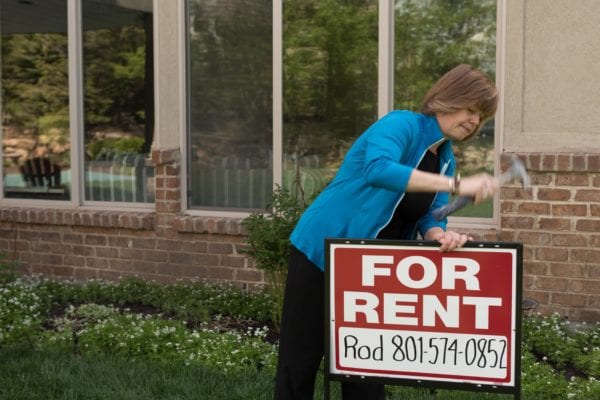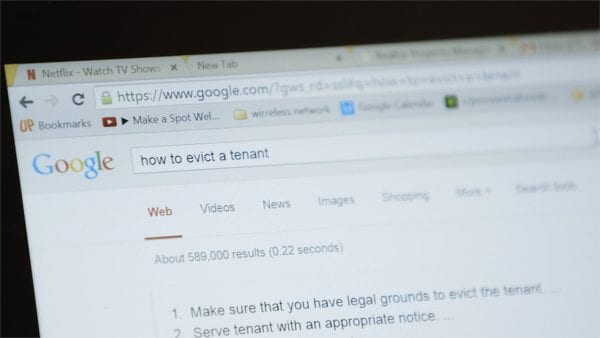Owning a rental property offers a lot of benefits and calculating returns on your investment is really a no-brainer. However, it’s a common mistake of many first-time landlords to overlook what costs actually go into a rental property. It’s more than just the rent minus the mortgage. So what are the common rental property expenses you shouldn’t overlook?
Maintenance and Repairs

The reason many of these common rental property expenses are overlook is the simple fact that they don’t occur on a monthly basis. Luckily for most landlords, maintenance repairs aren’t a monthly occurrence and shouldn’t be if you’ve kept up on routine, preventative maintenance and addressing small issues before they get worse. That being said, there’s no way to avoid maintenance repairs, and sometimes those can cost a pretty penny.
So how much should you budge for these repairs? Experts recommend 12-15% of the monthly rent, but this can vary based on the age and condition of the property. For example, a brand new home with warranties out the wazoo won’t cost as much to maintain as an older home.
Your vacancy rate also ties into how much you’ll spend annually on your property’s maintenance costs. If you have new tenants each year, odds are you’ll spend more in getting it ready to rent again than you would if you had long-term renters. After all, most tenants who’ve been in the same property for 10 years won’t ask to have the unit re-painted every 2 years.
Vacancy Periods

The highest expense landlords and real estate investors incur is during the vacancy period. You can’t collect rent without tenants, but the bank still expects that mortgage payment to roll in each month. Not to mention the maintenance costs you’ll have to shell out to get it rent-ready again. So how do you plan for this costly expense?
One way to get ahead of the game is to research the neighborhood and area before you buy the property. What’s the average days on market for rentals in that area? Is it a popular neighborhood with multiple attractions that renters actually want? Digging into the stats of the area you’re looking at investing in can save you money and time in the long run.
The second thing to consider is the property itself. What amenities does it offer? Is it upgraded? How quickly can you get it ready to rent again after the last tenants move-out? What’s the appropriate price point to start at? Make sure to consider all of these strongly when it comes time to find new tenants.
Property Insurance

Not all insurance policies are created equally, so when it comes to choosing an agent or carrier for your rental property, be sure to shop around. Interview a few different agents and see what they offer for specific properties in the area you’re interested in. It also helps to get a few quotes before you buy so you know what to expect.
Property Taxes

This is another important, but often overlooked expense simply because it’s not paid monthly. It is, however, a relatively easy expense to calculate. Once you know the annual property taxes for your property, it’s as simple as converting the amount to a percentage of the rent.
Property Management Costs

Whether you plan to hire a professional property manager or not, knowing how much they cost is a crucial expense to factor in and should be considered when setting your budget. You should be able to have enough to cover property management expenses and still make a return on your investment whether you choose to self-manage or not. That way if you decide later on down the road you don’t have the time or even the desire to be a do-it-yourself landlord, you’re not hurting when it comes time to hire a pro. Not to mention the time commitment, both with and without a property manager, is a real expense. Managing a rental is often a full-time job and requires a lot of time and attention. Don’t overlook the time and labor needed successfully manage your property and be realistic with whether or not you have that time to spare. If not, hiring a property manager may be the best option.
Miscellaneous Expenses

Finally, there are the miscellaneous expenses that no one really wants to think about, including eviction costs, attorney fees, and other legal expenses. While no one wants to go through an eviction or deal with a lawsuit filed by your current or even previous tenants, they shouldn’t be ignored. Make sure to set aside a budget for these types of expenses. It’s better to have a rainy day fund and not need it than find out you’re not prepared when it finally starts storming.
Owning a rental property is a great way to earn a passive and reliable income. It’s a steady investment and will never really go out of style. People always need a place to live. That being said, planning for every expense, both monthly and the not-so-common, can make the difference between eking out enough to pay the bills and thriving on your investment. Be smart and plan ahead for the common and uncommon rental property expenses. Your property, tenants, and future self will thank you for it!





